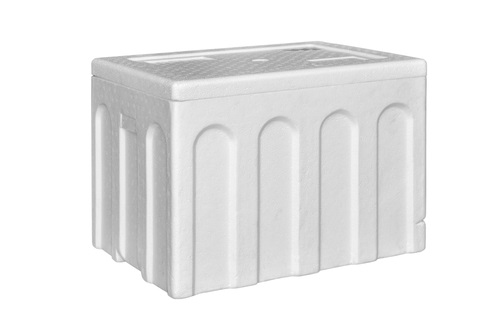How Detector Testers Distributors Are Revolutionising Safety Systems

When it comes to ensuring the reliability of safety systems, a Detector Testers Distributor plays a pivotal role in delivering the tools necessary to maintain high standards. From fire alarms to gas detectors, these distributors provide the equipment that professionals rely on to keep Singapore’s homes, offices, and public spaces safe.
The Vital Role of Detector Testers
Safety detectors such as smoke alarms, heat sensors, and gas leak detectors are not set-and-forget devices. Their effectiveness depends on regular testing, calibration, and maintenance. This is where detector testers come into play. They simulate real-life conditions to ensure that safety systems respond as expected, providing peace of mind in high-stakes environments.
A Detector Testers Distributor ensures that professionals have access to:
- Reliable and accurate testing tools
- Calibration kits for precise adjustments
- Training resources to maximise testing efficiency
Why Detector Testers Are Essential in Singapore
In a densely populated urban landscape like Singapore, safety systems are more than just a precaution—they’re a necessity. Consider the following data:
- The Singapore Civil Defence Force (SCDF) responded to over 2,400 fire incidents in 2022.
- Residential buildings accounted for 47% of these fires, underlining the importance of functional smoke and heat detectors.
- Gas-related incidents, while less frequent, pose a significant risk in commercial kitchens and industrial areas.
With such stakes, faulty safety detectors are not an option. Regular testing ensures that these life-saving systems function effectively, reducing risks and enhancing public safety.
Features to Look for in Quality Detector Testers
Not all detector testers are created equal. When sourcing from a distributor, professionals should prioritise tools that offer the following features:
- Compatibility with multiple detector types: Ensures versatility across smoke, heat, and gas detectors.
- User-friendly design: Tools should be easy to operate, even for technicians with minimal experience.
- Portable and durable construction: Essential for use in diverse environments, from residential homes to industrial facilities.
- Precision and reliability: Accurate readings are crucial for identifying and resolving potential issues.
- Compliance with safety standards: Ensure the equipment meets international standards like EN 54 or UL certification.
Benefits of Working with a Detector Testers Distributor
Collaborating with a trusted distributor offers several advantages for businesses and safety professionals:
- Access to Leading Brands: Distributors often partner with globally recognised manufacturers, ensuring high-quality products.
- Expert Guidance: A reputable distributor can provide advice on selecting the right tools for specific needs.
- Training and Support: Many distributors offer training sessions or resources to help technicians use equipment effectively.
- Maintenance Packages: Some distributors include calibration and servicing options, extending the lifespan of detector testers.
- Cost Savings: Bulk purchasing options and competitive pricing can reduce overall expenses for businesses.
Applications of Detector Testers in Various Sectors
Detector testers are used across a range of industries in Singapore:
- Residential Buildings: Testing smoke and heat detectors to prevent household fires.
- Commercial Properties: Ensuring compliance with fire safety regulations in offices and retail spaces.
- Industrial Facilities: Testing gas detectors to identify potential leaks in manufacturing plants.
- Hospitality Sector: Maintaining functional safety systems in hotels, restaurants, and event venues.
- Transport Infrastructure: Testing detectors in MRT stations, airports, and bus depots to enhance commuter safety.
How Singapore Is Leading the Way in Safety Standards
Singapore’s strict regulatory environment has fostered a culture of safety, with guidelines that mandate the regular testing and maintenance of detectors. For instance, the Fire Code requires all smoke detectors in commercial and residential properties to undergo functional checks at least once a year. This creates a steady demand for reliable detector testers and highlights the critical role of distributors in supporting compliance.
Moreover, Singapore’s push towards smart cities has seen the integration of IoT-enabled detectors, which require advanced testing tools to verify connectivity and performance. Distributors are adapting to this trend by offering cutting-edge solutions for modern safety systems.
Selecting the Right Detector Testers Distributor
Choosing the right distributor can make all the difference in maintaining safety standards. Here’s what to look for:
- Reputation and Experience: Opt for distributors with a proven track record in the safety industry.
- Comprehensive Product Range: A good distributor offers a variety of tools for different detector types and brands.
- After-Sales Support: Ensure the distributor provides ongoing support, including technical assistance and warranty services.
- Local Availability: Working with a Singapore-based distributor reduces shipping times and ensures faster delivery.
- Sustainability Practices: Choose distributors that prioritise eco-friendly products and practices, contributing to Singapore’s green goals.
Economic and Environmental Benefits of Regular Testing
Investing in quality detector testers yields both financial and environmental advantages:
- Cost Efficiency: Preventive maintenance reduces the likelihood of costly repairs or system replacements.
- Enhanced Safety: Regular testing minimises the risk of property damage, injuries, or fatalities.
- Sustainability: Functional detectors prevent false alarms and unnecessary energy consumption, aligning with Singapore’s commitment to sustainability.
Maintenance Tips for Detector Testers
Even the best detector testers require care to function optimally. Here’s how to keep them in top condition:
- Regular Calibration: Ensures accuracy and reliability.
- Cleaning and Storage: Keep testers free from dust and store them in protective cases.
- Firmware Updates: Install updates for digital testers to maintain compatibility with new detector models.
- Annual Servicing: Work with your distributor to arrange periodic maintenance.
Looking Ahead: The Future of Detector Testers
As technology evolves, detector testers are becoming more sophisticated. AI integration and smart connectivity are transforming how safety systems are tested and maintained. For example, testers equipped with cloud connectivity allow technicians to monitor results in real time, streamlining maintenance schedules and enhancing efficiency.
By working with a forward-thinking Detector Testers Distributor, safety professionals can stay ahead of these advancements and ensure that their systems are future-proof.
In a world where safety is paramount, the role of a Detector Testers Distributor cannot be overstated. By providing cutting-edge tools, expert guidance, and unwavering support, these distributors help create safer environments across Singapore, protecting lives and property every step of the way.






